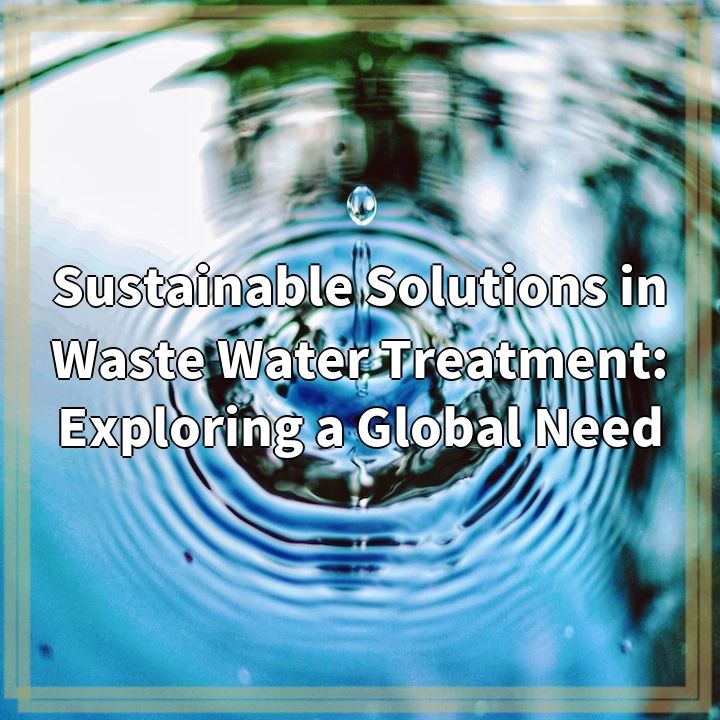
What is Sustainable Solutions in Waste Water Treatment?
Sustainable solutions in waste water treatment refer to environmentally friendly approaches and practices that aim to efficiently treat and manage wastewater while minimizing negative impacts on the environment and human health. It involves the implementation of advanced technologies, innovative strategies, and appropriate infrastructure to ensure the sustainable use and reuse of water resources.
Real-World Problems Associated with Sustainable Solutions in Waste Water Treatment
Despite the importance of sustainable waste water treatment, several challenges hinder its widespread adoption and implementation. Addressing these problems is crucial to ensure the successful management of waste water resources globally. Some of these challenges include:
Limited Resources and Funding
Implementing sustainable waste water treatment systems often requires substantial financial resources, technical expertise, and infrastructure development. Many regions, especially in developing countries, face limitations in terms of funding and resources to support the implementation of sustainable solutions. This leads to delays in upgrading or establishing adequate waste water treatment facilities, resulting in increased pollution and health risks.
Lack of Awareness and Education
A lack of awareness and education about the importance of sustainable waste water treatment practices is another significant challenge. Many individuals and communities are unaware of the potential environmental and health consequences associated with inadequate waste water treatment. Without proper education and awareness campaigns, it is difficult to create a collective understanding and support for sustainable waste water treatment initiatives.
Technological Limitations
The availability and implementation of sustainable waste water treatment technologies can be limited in certain areas. Developing and adopting advanced treatment technologies requires extensive research, testing, and investment. Furthermore, some regions may lack access to the necessary infrastructure or expertise needed to operate and maintain such technologies. Overcoming these technological limitations is crucial for the widespread implementation of sustainable solutions in waste water treatment.

Solutions for Sustainable Solutions in Waste Water Treatment
To address the real-world problems associated with sustainable waste water treatment, several solutions can be implemented. These solutions aim to promote efficient and eco-friendly practices that prioritize the protection of the environment and human health. Some of these solutions include:
Increased Investment and Funding
One of the key solutions is to allocate more financial resources towards sustainable waste water treatment projects. Governments, organizations, and stakeholders need to prioritize investment in infrastructure development, advanced technologies, and research. By increasing funding, it becomes possible to upgrade existing treatment facilities, build new ones, and support initiatives that focus on sustainability and innovation.
Education and Awareness Campaigns
Raising awareness and educating the public about the importance of sustainable waste water treatment is crucial. Through informative campaigns, workshops, and community engagement, individuals can better understand the potential consequences of inadequate waste water treatment. This knowledge can empower communities to advocate for sustainable practices, support policy changes, and contribute to the overall improvement of waste water management.
Research and Technological Advancements
Investing in research and development of new waste water treatment technologies and methodologies can drive the advancement of sustainable practices. By supporting scientific research and innovative approaches, it is possible to develop more efficient, cost-effective, and environmentally friendly waste water treatment solutions. This includes the exploration of alternative treatment methods, such as decentralized systems, natural filtration techniques, and resource recovery from waste water.















